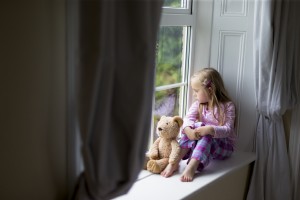8/21/16 blog post
dealing with childhood depression
For children suffering from childhood depression, an approach called “Behavioral Activation” offers promising hope of an effective treatment for this serious disorder.
 Behavioral Activation focuses attention on changing the child’s behavior, rather than on their feelings or thoughts. Consistent with other behavioral-based therapies, the idea is that when a youngster starts behaving differently, their thoughts and feelings will subsequently change.
Behavioral Activation focuses attention on changing the child’s behavior, rather than on their feelings or thoughts. Consistent with other behavioral-based therapies, the idea is that when a youngster starts behaving differently, their thoughts and feelings will subsequently change.
The approach is pretty straightforward, with therapists helping kids identify the behaviors associated with various moods. The key is to encourage kids to make some small changes in doing things that are rewarding or give them a sense of achievement. These changes typically then cause improvements in kids’ moods and thinking patterns. For all children, but particularly for teens, this means promoting interactions with peers. Regardless of our age, our relationships with others make living meaningful and fun.
Childhood depression is a mental disorder that makes no sense to many parents. Most kids have little responsibility, and unconditional attention from loving adults. How could you possibly be sad?
Depression is a disorder in the way we think, feel, and act. Kids are as vulnerable to this illness as are adults. The Centers for Disease Control estimates that 4.3% of youth 12 to 17 years of age suffer from depression, although other estimates are much higher. Depression can also occur with younger children as well.
Indications of depression can frequently be ignored, misunderstood, or viewed as typical childhood behaviors. Symptoms may include physical complaints, distractibility, sleep problems, fatigue, or irritability. Focus on the following three areas if you are concerned that your child may be depressed.
- Thinking. Depression is a mood and thought disorder. Depressed children think differently about the world. They are often negative, and may blame themselves excessively when things go wrong. They expect and therefore often experience rejection. They feel hopeless to change anything about themselves or others. They have a long list of irrational beliefs that make little sense to anyone other than themselves.
- Feeling. Depression is more than an occasional feeling of sadness. That’s normal. Depressed kids experience little enjoyment from normal activities or achievements. This sense of malaise may continue for weeks, and even months. They may feel anxious and live an inner life of turmoil and chaos. Talking about their emotions is scary for depressed kids, because saying what they feel may make their inner world seem more real and terrifying.
- Behaving. These kids may exhibit a variety of distressed behaviors. They tend to retreat from the world, because nothing gives them any sense of hope or happiness.
If you have concerns, seek out the help of a pediatric mental health specialist.

